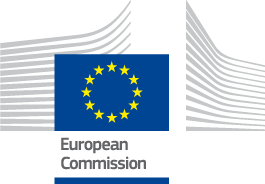

Good Practice Short Story

As a resident, fisherman and nurseryman in the Ria Formosa, I believe this project meets the main concerns of producers, such as the Ria's production capacity, improving water quality and reducing the negative impact resulting from excessive navigation – with the advantage of significantly reducing operating costs, as all the equipment will be shared by all of us.
This project is being developed in Ilha da Culatra, in Ria Formosa, where 41% of Portugal’s aquaculture takes place. The farming of clams and oysters is the main source of income for most of the population living in Ria Formosa, especially people that live in fishing neighbourhoods.
The FLAG project, promoted by the Association of Culatra Island Residents (AMIC), was part of the bigger “Culatra 2030 - Sustainable Energy Community” initiative. This initiative aimed to install Culatra harbour with solar energy related equipment, such as a photovoltaic plant (64 kWp) to provide energy to the fisheries facilities; a 32 kWh energy storage unit; a pilot solar-powered vessel for use by all the shellfish farmers in the community; and a charging point to support aquaculture and tourism activities in a sustainable way. It also promoted the creation of a local micro-grid concept that allows the intelligent use of energy through the identification of peak hours and efficient management of available energy resources.
For the FLAG project, AMIC established a partnership with Sun Concept, a Portuguese shipbuilding company that specialises in developing and manufacturing recreational and professional boats with solar-electric propulsion. The solar-powered vessel will be to be used for aquaculture activities. It will also allow the community to test this kind of boat, which will hopefully encourage them to transition from combustion engine vessels to solar-electric ones. This would have direct, positive effects on the profit margin for local economic activities, environmental conservation and certification of the “Bivalves Culatra 2030” brand.
Local shellfish farmers are also expected to become more competitive when applying for national energy transition subsidies – such as those available through the National Plan for Energy and Climate 2030, the Roadmap for Carbon Neutrality 2050 and the National Investment Plan 2030. In addition, the shellfish farmers will be able to take advantage of other EU funding opportunities, in order to forward the creation of the Sustainable Energy Community.
| Budget | €199 937 |
|---|---|
| EU contribution |
€161 449
|
| Other public contribution |
€28 491
|
| Private contribution | €9 997 |
| Timeframe of implementation | From Jan 2020 to Dec 2021 |
|---|---|
| Sea Basins |
|
| Type of area |
|
| Theme |